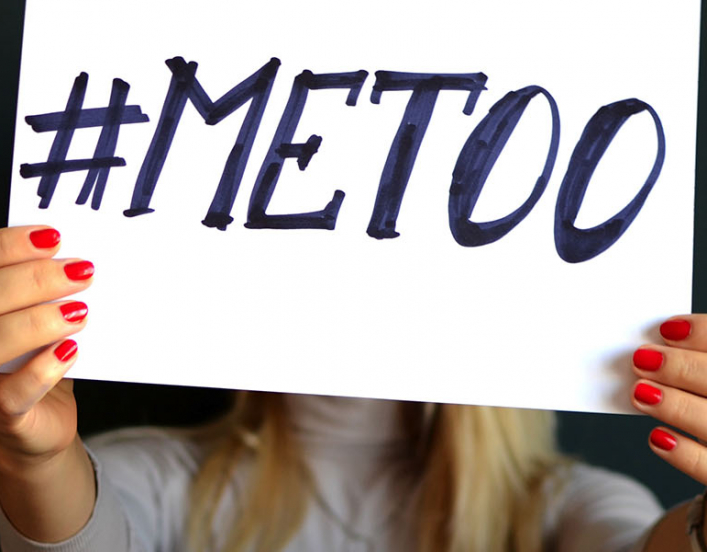Where We Stand: Workplace Harassment
To guarantee equality, individual rights, and social justice for a diverse and inclusive society, AAUW advocates freedom from violence and fear of violence, including hate crimes, in homes, schools, workplaces, and communities.
Sex-based discrimination and harassment in the workplace can harm the health and safety, productivity, and career advancement of employees—yet these practices continue in workplaces across the country. Sex-based discrimination and harassment can come in many different forms, including derogatory language based on gender identity or expression, discrimination against pregnant workers, and sexual harassment or assault. The U.S. Equal Employment Opportunity Commission (EEOC) received nearly 11,500 complaints of sex-based harassment, including sexual harassment, in 2020 alone. The actual incidence of sex-based harassment in the workplace, however, is likely much higher—the EEOC estimates that about 75% of these cases go unreported.
Title VII of the Civil Rights Act of 1964 prohibits discrimination—and harassment as a form of discrimination—in employment on the basis of sex, as well as race, color, national origin, and religion. Title VII also prohibits employers from retaliating against employees for speaking out about harassment or filing a harassment charge, as well as for participating in an investigation, proceeding, or hearing on behalf of a coworker. The Equal Employment Opportunity Commission (EEOC) is the federal government agency responsible for the enforcement of Title VII and other employment discrimination and harassment laws.
AAUW in Action
All public policy actions take direction from the AAUW Public Policy Priorities, voted on by members every two years. AAUW is a nonpartisan organization—but nonpartisan does not mean “non-political”. Since its first meeting in 1881, AAUW has been a catalyst for change. Together, through our coordinated and strategic advocacy, we’ve enacted invaluable legislation at the federal, state, and local levels. The 2021-2023 Public Policy priorities directly identify advocating freedom from violence and fear of violence in workplaces and beyond.
The public policy team engages in many efforts on this key issue, including but not limited to:
- Working in coalition with other gender equity organizations, including the Employment Task Force of the Leadership Conference on Civil and Human Rights.
- Engaging AAUW advocates and members through targeted calls to action on important legislation, like the EMPOWER Act and BE HEARD Act.
- Engaging directly with elected leaders and the public through calls, letters to political offices, and comments and testimonies in hearings.
- Providing voter education resources on key equity issues to consider during elections and offering information on how elected officials have voted in the past (more about this and Get Out the Vote guides at the AAUW Action Fund).
Workplace Sexual Harassment
Sexual harassment is unwelcome conduct of a sexual nature and can be verbal, nonverbal, or physical, including sexual assault. It is illegal under Title VII as a form of sex discrimination. Unfortunately, workplace sexual harassment continues to impact women of all ages and in all sectors. One study found that 34% of female employees say they have been sexually harassed by a colleague.
Workplace sexual harassment threatens women’s mental health and physical safety and can lead to depression, posttraumatic stress disorder, and increased risk of long-term physical health problems. Sexual harassment also erodes women’s short- and long-term economic security when women decrease their hours or leave a job to avoid their harasser. According to AAUW’s research, 38% of women who’d been harassed said it contributed to their decision to leave a job early and 37% said it disrupted their career advancement. These negative impacts compound over time to reduce women’s lifetime earnings and contribute to the gender wage gap and leadership gap.
Pregnancy Discrimination
Pregnancy discrimination in the workplace can include firing a pregnant employee, refusing to hire an applicant because they are pregnant or plan to have children, or denying an employee the same or similar position after returning from parental leave. The Pregnancy Discrimination Act (PDA) of 1968 clarified that discrimination based on pregnancy, childbirth, or related medical conditions as a form of sex discrimination is prohibited under Title VII, and forbids policies that disparately impact women because they are pregnant or able to become pregnant. Though pregnancy discrimination is unlawful under PDA and Title VII, this type of sex discrimination persists in the workplace. The EEOC fielded nearly 2,700 complaints of pregnancy discrimination in 2020 alone.
The Pregnant Workers Fairness Act, which passed the U.S. House of Representatives in May 2021, would require employers to make reasonable accommodations to protect the health of pregnant workers, such as letting them carry bottles of water or take restroom breaks. This legislation would also clarify that it is unlawful to discriminate against pregnant workers by forcing them out of their jobs or by denying them reasonable accommodations that would allow them to keep working.
Opportunities to End Workplace Harassment
New laws and policies are needed to battle the continuing problem of harassment and discrimination in the workplace.
- The Ending the Monopoly of Power Over Workplace Harassment through Education and Reporting or EMPOWER Act would make it easier and safer for people to speak out when they experience workplace harassment and make it harder for employers to avoid accountability. The EMPOWER Act was reintroduced in Congress on November 3, 2021—urge your members of Congress to support here.
- The Bringing an End to Harassment by Enhancing Accountability and Rejecting Discrimination or BE HEARD Act would build on existing civil rights laws to provide new protections against harassment for workers, while also safeguarding existing discrimination laws. The BE HEARD Act was reintroduced in Congress on November 17, 2021—urge your members of Congress to support here.
- The Protecting Older Workers Against Discrimination Act would address discrimination against older workers by restoring workplace protections that were weakened in a 2009 Supreme Court decision. The bill passed the House of Representatives in June 2021, and now moves onto the Senate.
None of these policies stand alone to protect workers from discrimination in the workplace. Legislation like the Paycheck Fairness Act and Raise the Wage Act would help workers by addressing the gender pay gap and raising the minimum wage.


